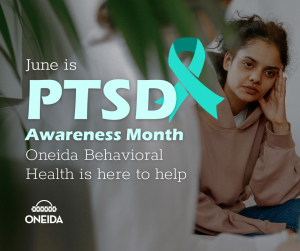Tips for Processing Traumatic Events

The World Health Organization (WHO) tells us that about 70% of the world’s population will experience a traumatic event during their lives and approximately 3.9% will subsequently develop PTSD. Most people exposed to traumatic events do not develop PTSD, and receiving support from family, friends or others following a traumatic event greatly reduces your risk. A traumatic event is a specific, shocking or dangerous experience that undermines a person’s sense of safety and balance.
In the spirit of Post Traumatic Stress Disorder (PTSD) Awareness Month which takes place in June, we’re sharing some of the most effective ways to process a traumatic event:
- Accept your feelings – Recognize what you are feeling and give yourself enough time to experience every emotion. You could feel overwhelmed, anger, guilt, grief, relief and a whole range of conflicting emotions. Be patient with yourself.
- Maintain or reestablish your routine – Familiarity can be comforting. Getting back to your regular routine can help minimize stress following a traumatic event.
- Do something you love – Reconnect with the joy in your life by taking the time to do something you love. Getting lost for a short time in a favorite activity or hobby can help restore optimism and give you a sense of comfort.
- Keep active and connect with nature – Creating an exercise habit can help offset the negative effects of stress and can help you concentrate, sleep and feel better. Taking your exercise outdoors can provide a further boost, with natural light, fresh air and the sounds and smells of nature around you.
- Connect with others – Connect with a trusted friend, loved one or counselor and talk about the traumatic event when you feel ready.
- Nourish your body – Avoid or cut down on sugary foods, alcohol or illicit drugs that can make you feel worse. Breathe deeply to give your body the oxygen it needs to help you stay calm and relaxed.
If you feel you could benefit from speaking with a counselor, Oneida Behavioral Health is here to help. We can connect you with resources in our community to help you process your emotions and refocus on your own renewal and wellbeing. Call (920) 490-3790 to start the conversation.
Learn more about Oneida Behavioral Health at https://oneida-nsn.gov/resources/behavioral-health/. And, like and follow the Oneida Comprehensive Health Division Facebook page for healthy tips, events, resources and more.
06102025






